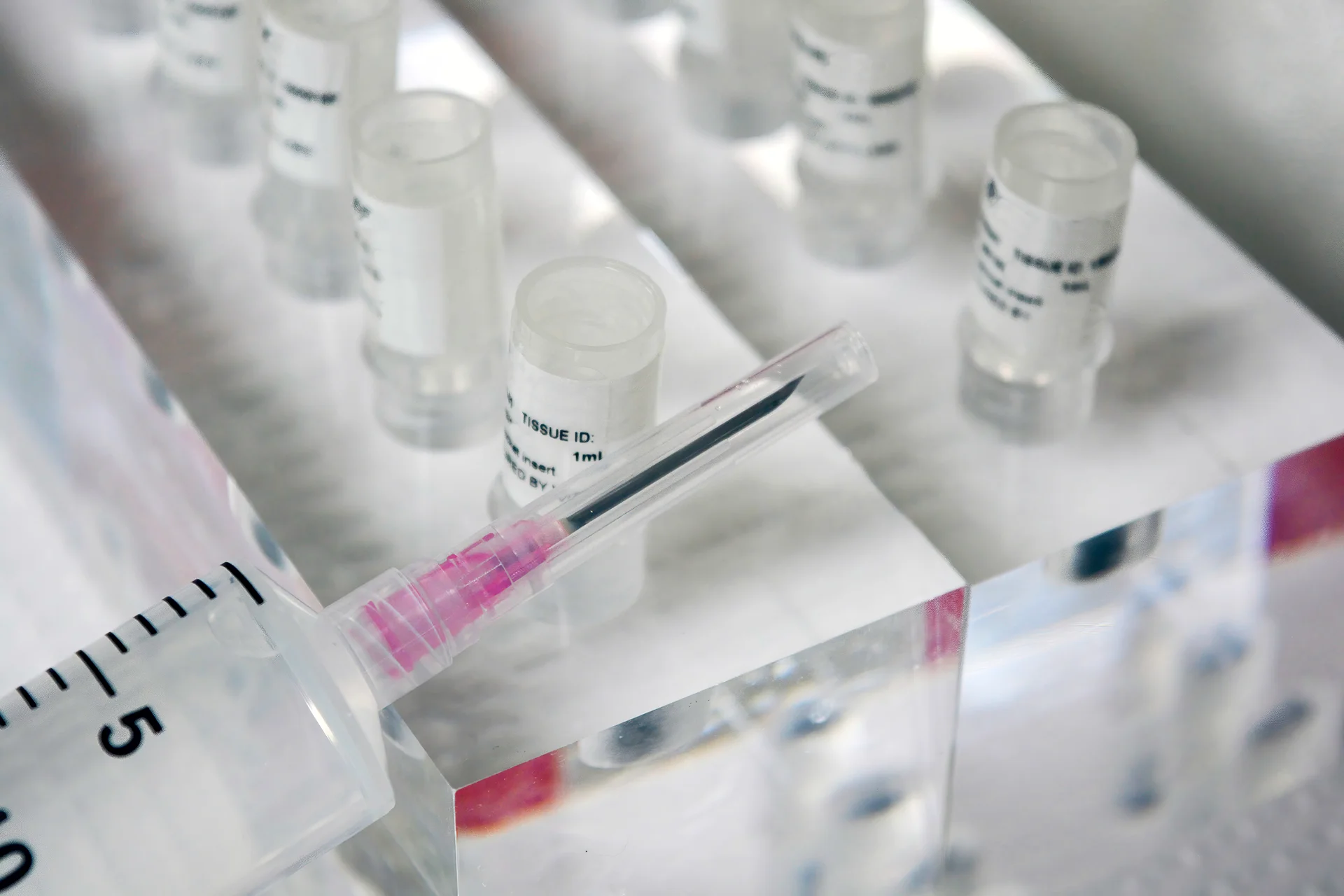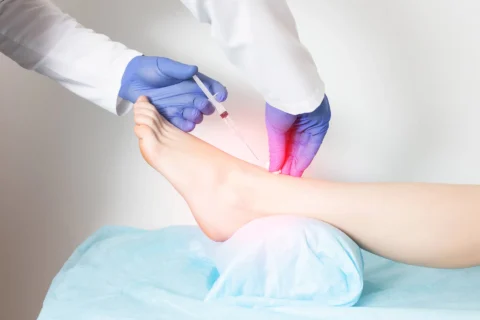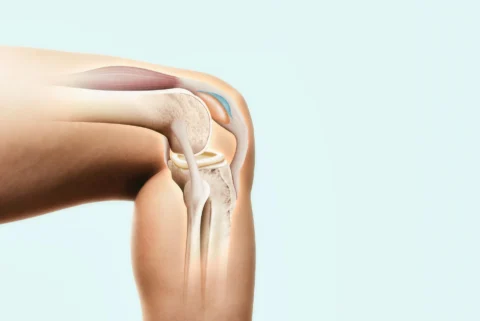Are stem cells the next big innovation for knee pain relief? Learn the facts here first.
Have you tried everything to find relief, but prescription pills, injections, and even surgery haven’t worked or provided lasting results? You may feel like you’ve run out of options, but innovative new treatments like stem cell therapy are providing hope for those suffering from knee arthritis.
Stem cells offer the possibility of regenerating cartilage and reducing inflammation without major surgery. Early results are promising, but does stem cell therapy really work for knee arthritis?
What are the risks, costs, and eligibility criteria? How does it compare to knee replacement? Get answers to these critical questions and more from experts on the latest research.
At Allure Medical, we always empower you with the knowledge needed to make informed decisions about cutting-edge treatments for lasting arthritis pain relief.
Does Stem Cell Therapy Work for Knees with Arthritis?
Stem cell therapy shows early promise for relieving knee arthritis pain and inflammation and possibly regenerating cartilage, but larger, rigorous studies are still needed to confirm efficacy and optimize treatment protocols.
Efficacy
While initial small pilot studies are encouraging, stem cell therapy for knees still requires more rigorous research to confirm efficacy.
Small studies have shown improvements in pain, function, and cartilage repair. However, most lack control groups or randomization.
A few randomized controlled trials have had mixed results. Some show greater improvements than corticosteroid injections. Others show no added benefit over conservative treatments.
High-quality, large randomized trials with long-term follow-up are required to determine the true efficacy and longevity of benefits.
Safety
Most studies report a strong safety profile so far, with minimal side effects like temporary swelling/pain.
Using a patient’s own cells (autologous) appears safer than other cell sources.
However, the longer-term safety of repeated treatments requires further evaluation through large studies.
Limitations and Unknowns
- No consensus yet on the optimal cell source, preparation, dosage, or injection frequency/timing.
- Unclear if single or multiple repeated treatments are needed, or how long benefits last before needing more injections.
- Outcomes are likely better in earlier-stage osteoarthritis without severe bone-on-bone damage.
Overall, more rigorous research is still required to optimize protocols. While early results are promising, stem cell therapy for knee arthritis remains investigational pending conclusive large studies.
Here at Allure Medical, we closely monitor the latest evidence-based research to provide you with the most effective emerging treatment options for lasting relief.
If you suffer from osteoarthritis knee pain, speak to one of our knowledgeable physicians to learn if stem cells may be appropriate for you.
How Long Does Stem Cell Therapy Last for Knees After Treatment?
Current limited evidence suggests stem cell therapy may provide significant knee arthritis pain relief lasting approximately 1-2 years on average, but more long-term research is still needed.
Evidence from Clinical Trials
- Multiple studies show improvements lasting 12-24 months after treatment. Some data indicates benefits may continue past 2 years.
- One study found patients reported ongoing pain relief 5 years later.
- MRIs have shown cartilage regeneration even 1 year after treatment.
- However, most trials follow patients for 6-24 months only with small sample sizes.
- Large studies tracking outcomes for 5+ years are still needed.
Individual Patient Factors
- While some patients report pain relief lasting 6 months to 5+ years, responses vary greatly.
- Elements like age, arthritis severity, treatment area, and stem cell type likely impact duration.
- More research is required to identify predictors of response and optimize protocols.
Who Qualifies for Stem Cell Therapy for Knees?
- Adults aged 18 or older with documented knee osteoarthritis through imaging and clinical exam.
- Patients with mild to moderate arthritis and relatively little cartilage damage seem to benefit more compared to those with advanced disease.
- Otherwise healthy patients with a body mass index under 30 kg/m2. Obesity can accelerate arthritis progression.
- No contraindications like active infections, cancer, or blood disorders.
Stem cell therapy can be performed in adults of any age, including those over 60 or 70 based on studies. However, outcomes may be better in relatively younger patients under 60 with less severe arthritis.
Older patients over 60 should be carefully evaluated for other health conditions before treatment, as comorbidities may impact safety and efficacy.
There are no definitive medical guidelines on strict age cutoffs. Physicians make eligibility decisions on a case-by-case basis weighing factors like age, disease severity, history, and more.
What Are the Best Types of Stem Cell Therapy for Knees?
For knee conditions like osteoarthritis, ACL tears, and meniscus tears, mesenchymal stem cells (MSCs) derived from bone marrow or adipose fat tissue appear most promising so far, but more research is still needed.
For Knee Osteoarthritis:
- Mesenchymal stem cells (MSCs) from bone marrow or adipose fat tissue have shown the most promise in recent studies.
- MSCs can develop into cartilage and connective tissues to potentially regenerate damaged areas.
- Meta-analyses found that MSCs from umbilical tissue or adipose fat offered the best pain relief.
- But stem cell therapy for osteoarthritis remains investigational requiring more research.
For ACL Tears:
- Studies show stem cell injections may enable faster non-surgical recovery versus ACL reconstruction surgery.
- Using a patient’s own bone marrow cells can enhance natural healing processes.
- Early results are promising, but larger clinical trials are still needed.
For Meniscus Tears:
- Stem cells offer a minimally invasive option to heal tears without surgical removal.
- A patient’s own stem cells and platelets can repair torn meniscal tissue.
- Bone marrow-derived stem cells (BMSCs) appear most effective for meniscus regeneration so far.
Are There Any Risks Associated with Stem Cell Therapy on Knees?
Common Side Effects:
- Temporary pain, swelling, and stiffness at the injection site are most common. These typically resolve within days to weeks.
- Risk of infection exists but is low due to the minimally invasive procedure.
Rare or Theoretical Risks:
- Abnormal cell growth or tumor formation is possible but has not been directly reported in studies thus far.
- A few case reports describe tumors developing after stem cell therapy, but a causal link is still unclear.
Unknown Long-Term Risks:
- As stem cell therapy remains investigational, the long-term safety profile is still unknown.
- Large, rigorous trials with extended follow-up are warranted.
How Does Stem Cell Therapy Compare to Knee Replacement Surgery?
Stem cell therapy is less invasive with fewer risks than knee replacement surgery, but long-term efficacy is still uncertain, whereas knee replacement is highly effective though more invasive with higher complication rates.
| Treatment | Stem Cell Therapy | Knee Replacement Surgery |
| Effectiveness | Shows early promise for reducing pain and improving mobility, but long-term efficacy remains uncertain. Approximately 80% of patients report improvements in smaller trials. | Highly effective long-term for pain relief, with over 90% still functioning well after 10 years. However, implants may need replacement after 10-20 years. |
| Invasiveness | Minimally invasive procedure involving injection of cells into the knee joint. Does not require hospitalization or lengthy recovery. | Major surgery involving cutting bone and implanting artificial joints. Requires hospitalization and 6+ weeks recovery time. |
| Risks and Complications | Displayed minimal side effects like temporary pain/swelling in studies so far. Longer-term risks remain unknown. | Risks include chronic pain, stiffness, infection, blood clots, nerve damage, need for revision surgery, etc. Mortality risk around 0.6%. |
| Costs | Approximately 1/3 the average cost of knee replacement. But multiple treatments may increase costs over time. | Typically well covered by insurance, but out-of-pocket costs through deductibles/copays can be high. |
What Are the Outcomes of Clinical Studies on Stem Cell Therapy for Knees?
Clinical studies show stem cell therapy consistently provides pain relief but has mixed results for improving function in knee osteoarthritis patients short-term; more research is needed on long-term efficacy.
Meta-Analyses
- A 2020 meta-analysis found stem cell therapy was effective for pain relief and safe for treating knee osteoarthritis.
- A meta-analysis by Huang et al. found stem cells considerably relieved pain at 3, 6 and 12 months compared to placebo. However, no difference was seen in function.
Randomized Controlled Trials
- A 2020 RCT found adipose-derived stem cells reduced pain and improved function in knee osteoarthritis patients.
- A 2019 RCT compared bone marrow vs adipose stem cells, finding both reduced pain and improved function versus placebo.
- A study featured on Future Medicine of 329 patients found significant improvements in pain and function after stem cell therapy.
Systematic Review
- One review found stem cell therapy relieved pain over time but did not improve knee function.
Ongoing Research
Several ongoing trials are testing mesenchymal stem cells for knee osteoarthritis, but limited details are available so far.
FAQs
Can stem cells repair damaged knee cartilage?
Stem cells can repair damaged knee cartilage by regenerating new healthy cartilage cells and tissue.
Does stem cell therapy work for bone-on-bone knee conditions?
Stem cell therapy has mixed results for bone-on-bone knee arthritis, working better for minor damage by reducing inflammation and pain.
Can stem cell therapy help with knee ligaments and tendon issues?
Yes, stem cell therapy shows promise for repairing damaged knee ligaments and tendons by promoting tissue regeneration.
What are patient experiences with stem cell therapy for knees?
Patients report stem cell knee injections improve pain, mobility, and quality of life, avoiding or delaying knee replacement surgery.
Is there an age limit for receiving stem cell therapy for knee pain?
No specific age limit exists for stem cell knee injections, but treatment works better for younger patients with less severe arthritis.
How do stem cell injections work for knee physical therapy?
Stem cells aid knee physical therapy by decreasing inflammation and pain while repairing damaged cartilage, ligaments, and tendons.











